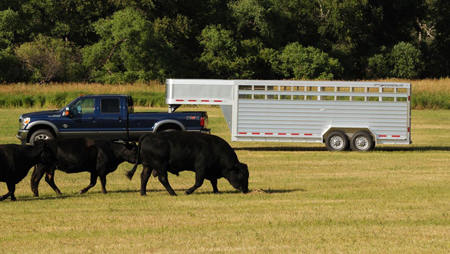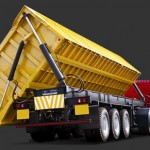Living and working on a farm delivers pleasure and benefits to many people, but also conveys commitment and many responsibilities. One of the biggest responsibility is taking care of farm animals and keeping them safe, not only in the barn, but when transporting them as well. Every year different farm animals are being transported all over Australia. When animals are being transported, they need to be well protected against any unnecessary sufferings. Today there are strict regulations on transporting animals which need to be followed. In some cases, relocation can last several days which is why animals need to be transported safely and in a way that will minimize stress and chances for injury. Therefore, specific procedures and equipment are necessary to guarantee the safety of the animals during transport.
Many farmers use livestock trailer to carry and transport animals from one location to another. There are many different size and types of livestock trailers on the market, depending on the type of farm animals. These trailers provide safe transport and prevent animals from being injured. Livestock trailers are usually made from steel or aluminum or mix of the two, provide sufficient floor and height space and are only a foot away from the ground. This allows easy loading and unloading of animals. Livestock trailer is a common transportation equipment on Australian farms. However, they are mainly used for short distance transportation, a journey not longer than 9 hours. For longer journeys, special transportation vehicles with additional features like ventilation and temperature monitoring systems are required.
During transportation, animals also must be properly treated. This means water, feed and rest periods. In case of night loading or unloading, the area should be well-lit so animals can move easily from barn to livestock trailer and vice versa. Anyone who is engaged in the transportation process needs to be properly trained to know how best to handle the farm animals and how to act in a case of animal being injured or other unexpected emergency.



Comments are closed.